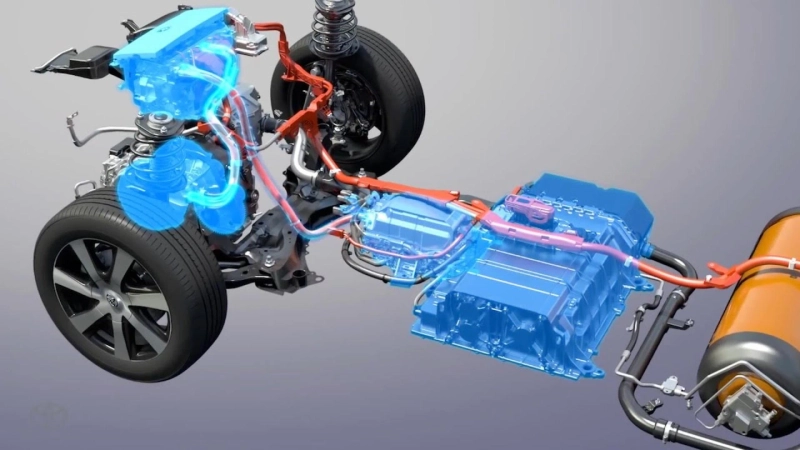Market Overview:
The global hydrogen fuel cell vehicle market is projected to reach a valuation of US$1.46 billion by 2023, with a compound annual growth rate (CAGR) of 54.3% during the forecast period of 2023-2030. Hydrogen fuel cell vehicles are gaining prominence due to their numerous advantages over conventional vehicles. These vehicles utilize hydrogen as a fuel source, which reacts with oxygen to produce electricity, with water as the only byproduct. Hydrogen fuel cell vehicles offer zero-emission transportation, longer driving range, shorter refueling time, and potential for energy independence.
Market Key Trends:
One key trend in the hydrogen fuel cell vehicle market is the increasing focus on developing an extensive hydrogen infrastructure. As hydrogen fuel cell vehicles gain traction, the need for a robust and widespread hydrogen refueling network becomes essential. Governments, automotive manufacturers, and energy companies are collaborating to establish hydrogen stations and infrastructure to support the growth of the market. The expansion of the hydrogen refueling network will address the consumers' range anxiety and encourage the adoption of hydrogen fuel cell vehicles on a larger scale.
Segment Analysis:
The hydrogen fuel cell vehicle market can be segmented based on vehicle type, fuel cell technology, and end-use. By vehicle type, the market can be divided into passenger vehicles and commercial vehicles. The passenger vehicle segment is expected to dominate the market during the forecast period. This is mainly attributed to the increasing demand for eco-friendly and energy-efficient vehicles among consumers. Growing environmental concerns and stringent government regulations regarding carbon emissions are driving the adoption of hydrogen fuel cell vehicles in the passenger vehicle segment.
By fuel cell technology, the market can be categorized into proton exchange membrane fuel cell (PEMFC) and solid oxide fuel cell (SOFC). The PEMFC segment is expected to dominate the market owing to its advantages such as high efficiency, low operating temperature, and quick startup time. The widespread adoption of PEMFCs in passenger vehicles is a key factor driving the dominance of this segment.
On the basis of end-use, the market can be segmented into transportation and stationary power. The transportation segment is anticipated to dominate the market due to the increasing demand for zero-emission vehicles in the transportation sector. Governments around the world are promoting the adoption of hydrogen fuel cell vehicles to reduce air pollution and dependence on fossil fuels.
Key Takeaways:
The Global Hydrogen Fuel Cell Vehicle Market Size is expected to witness high growth, exhibiting a CAGR of 54.3% over the forecast period, from 2023 to 2030. The market is driven by factors such as increasing environmental concerns, government support, and advancements in fuel cell technology. The adoption of hydrogen fuel cell vehicles is expected to increase significantly, especially in developed countries, as they offer efficient and eco-friendly transportation solutions.
In terms of regional analysis, North America is expected to be the fastest-growing and dominating region in the hydrogen fuel cell vehicle market. The region has a well-established infrastructure for hydrogen refueling stations and favorable government policies, which are driving the adoption of fuel cell vehicles. Additionally, increasing investments by key players and advancements in fuel cell technology are further supporting the market growth in North America.
Key players operating in the hydrogen fuel cell vehicle market include Audi AG, Ballard Power Systems Inc., BMW Group, Daimler AG, General Motors Company, Honda Motor Co., Ltd., and Hyundai Motor Group. These key players are focusing on research and development activities, collaborations, and strategic partnerships to gain a competitive edge in the market. Investments in expanding the hydrogen refueling infrastructure and production facilities are also key strategies adopted by these players to fuel market growth.


